How to Fix Google Translate When It’s Not Working?
Google Translate may fail to function due to several reasons, with causes varying from one case to another. This issue commonly occurs with the mobile app, but some users also face it when using a browser or a browser extension. Users attempting to translate may encounter the message This Page Could Not Be Translated.

Sometimes, translations of unrecognized or unsupported characters are simply not possible. Try translating meaningful words and sentences. Furthermore, if you’re using a VPN, consider disabling it before attempting the translation again.
For Browsers:
The following solutions can apply to browsers of any version; although, we’ll use the stable release of Google Chrome to illustrate.
Solution 1: Update Your Browser
Browsers continuously update to accommodate new technological advancements. An outdated browser, incompatible with the translation mechanism of Google Translate, may be at the root of the issue. Therefore, updating your browser could possibly rectify the problem.
- Launch the Chrome browser and click on the three vertical dots at the top right corner, then select Settings.
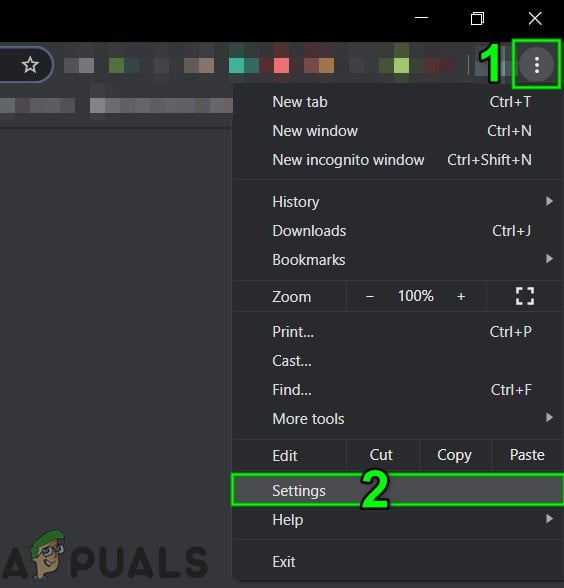
Open Chrome Settings - In the left pane, click on About Chrome.
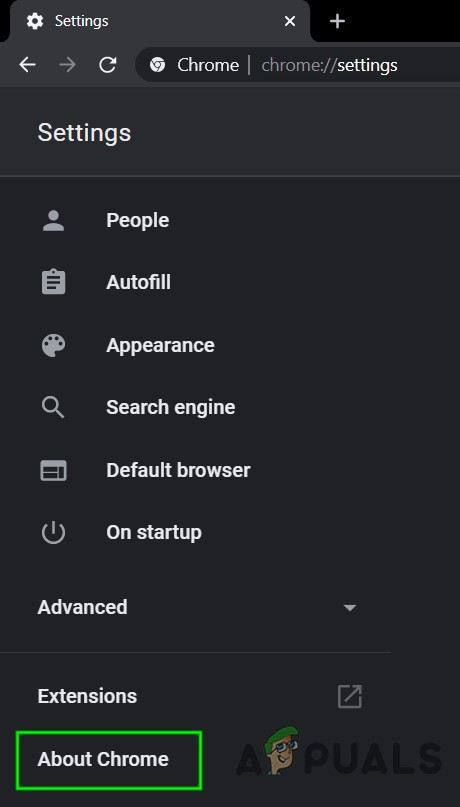
Open About Chrome - Select Check for Updates.
- Once Chrome is updated, open Google Translate to see if it’s working properly.
Solution 2: Disable Browser Extensions or Try Incognito Mode
Extensions enhance browser functionality; however, they might interfere with Google Translate. Disabling browser extensions or using InPrivate/Incognito mode may resolve the issue by eliminating third-party interference.
- Launch Chrome and click on the vertical ellipsis. Select More Tools and then Extensions.
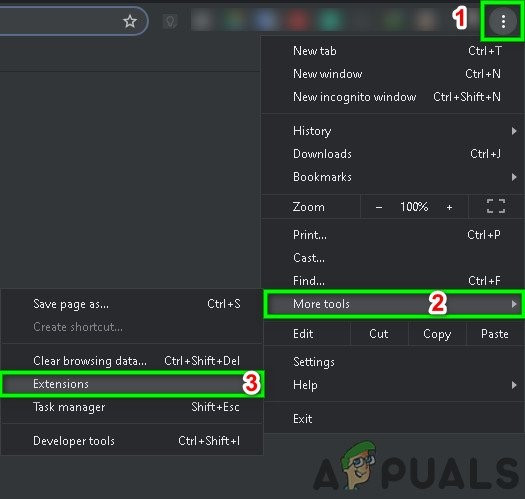
Open Chrome Extensions Menu - Disable all extensions by toggling their respective switches to Off.
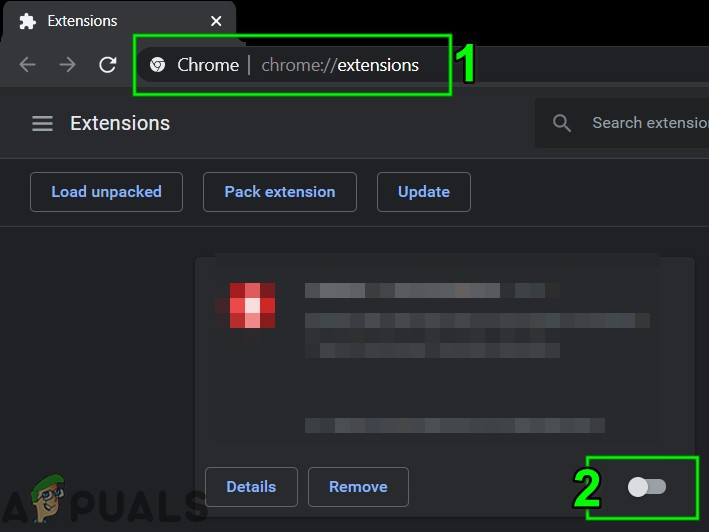
Disable a Chrome Extension - Test if Google Translate functions correctly, then re-enable extensions one by one to identify the culprit.
Solution 3: Deleting Cookies and Site Data
Cookies store server/client communication details, and browser cache enhances user experience and performance. However, corrupt cookies or cache could prevent Google Translate from functioning. Be aware that this process will delete all your browsing history and preferences.
- Launch Chrome and click on the three dots on top. Select More Tools, followed by Clear Browsing Data.
- In the Advanced tab, set the Time Range to “All Time” and choose the categories you want to clear (ideally, all).
- Click the Clear Data button and agree to clear the data.
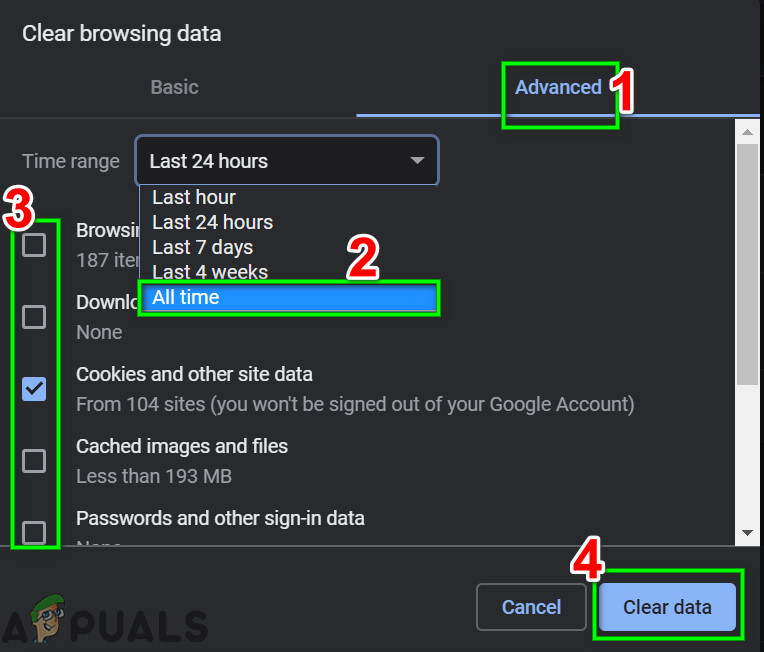
Clear Browsing Data of All Time - Restart Google Translate and check for proper operation.
Solution 4: Reset Browser Settings to Default
Customized Chrome settings might interfere with Google Translate’s translation engine. If so, resetting your browser settings to their default states could resolve the issue.
- Open Chrome, click on the vertical ellipsis, and select Settings.
- In the left pane, expand Advanced and select Reset and Clean Up.
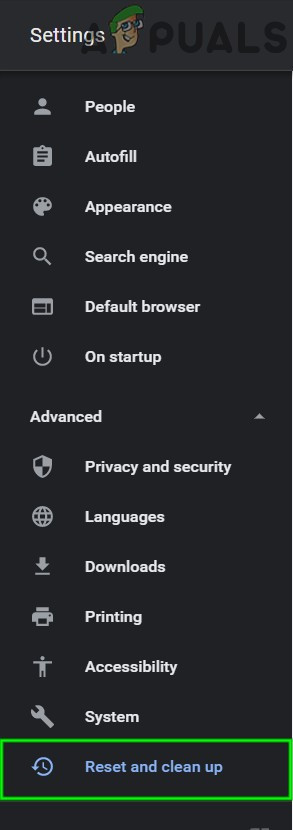
Click on Reset and Clean-Up in Chrome - Choose Reset Settings to their Original Defaults.
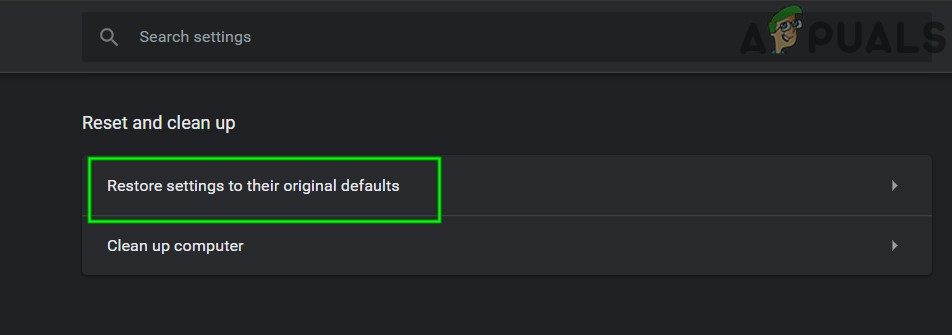
Click Reset Settings to their original defaults - Afterward, open Google Translate to see if the issue is resolved.
Solution 5: Try Another Browser
Browsers, like all software, can house bugs. If you’re experiencing a persistent issue with Google Translate, trying another browser may rectify the situation.
- Launch a different web browser. If necessary, download and install one.
- Navigate to the Google Translate website to determine if the service operates without issues.
Solution 6: Use Chrome Extension
Google Translate provides extensions/add-ons for most major browsers. If the website is problematic, using the browser’s extension can be a workaround, as both source from the same API.
- Open Chrome and proceed to the Google Translate extension page in the Chrome Web Store.
- Click Add to Chrome and then Add Extension in the pop-up dialogue.

Add Google Translate Extension to Chrome Use the extension by clicking the Google Translate icon to the right of the address bar and enter the text to be translated. For translating the current page, select Translate this page.
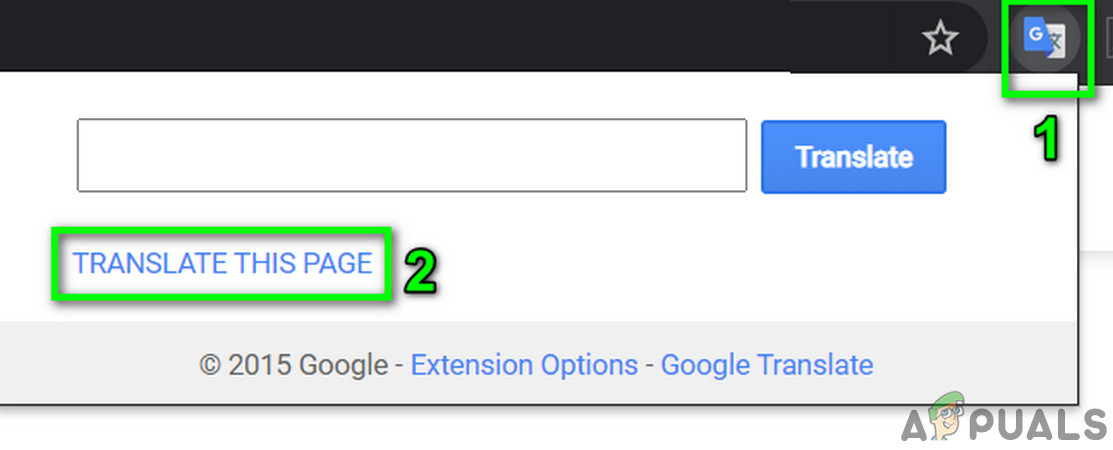
Translate this Page in Google Translate
Solution 7: Enabling Automatic Source Language Detection
If the text you want to translate includes multiple languages and the From box does not have Detect Language set, difficulties can occur. Activating automatic language detection ensures that the correct source language is selected.
- Attempt to translate the problematic page/text using Google Translate.
- Select “Detect Language” from the dropdown box under From and verify if the issue is resolved.
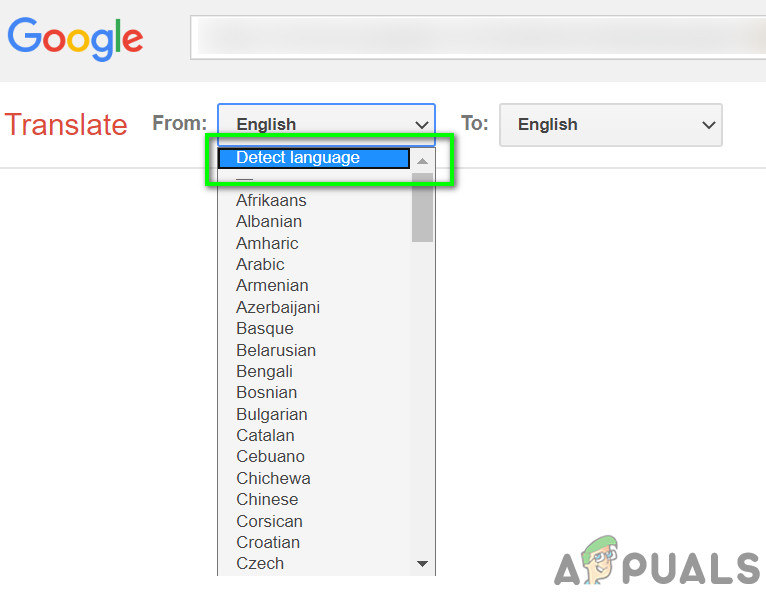
Select Detect Language in From Dropdown of Google Translate - Should automatic detection fail, manually set the source language using the dropdown menu to see if this solves the problem.
For Android:
The following solutions can be applied regardless of Android version or device. Ensure you’re logged into your Google account before proceeding.
Solution 1: Clear Cache and Data of the Google Mobile App
The Google Translate app uses a cache to improve speed and experience. If the cache contains corrupt data, the app may malfunction. Clearing the cache and data might resolve this issue, as detailed below for Android:
- Access your Android phone’s Settings and tap on Apps/Application Manager after exiting Google or Google Translate.
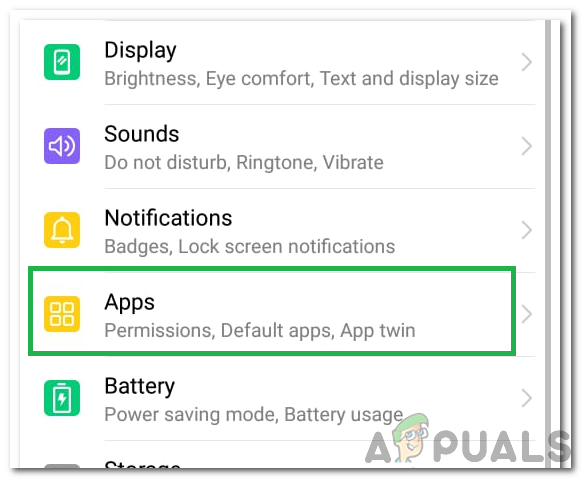
Clicking on the “Apps” option - Find and tap on the Translate app.
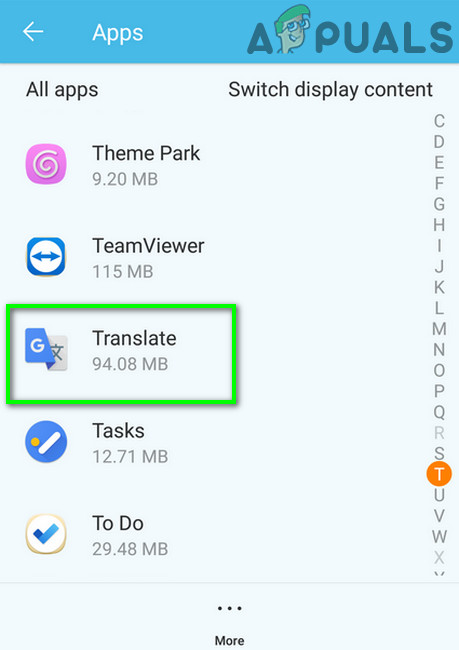
Tap on Translate in the Application Manager - Press Force Stop and confirm to halt the app.
- Tap on Storage and then select the Clear Cache button.
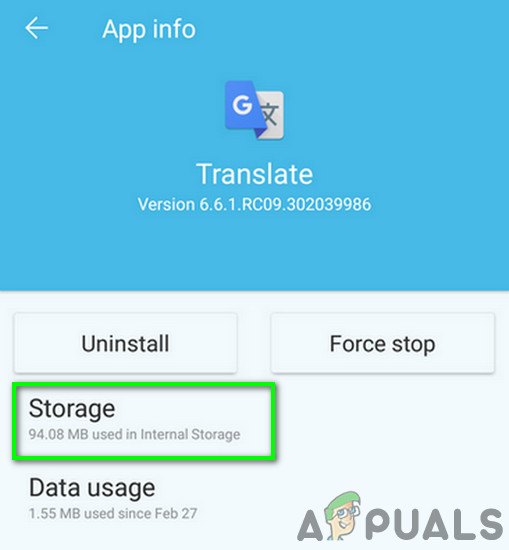
Tap on Storage for Google Translate - Hit the Clear Data button and confirm the action.
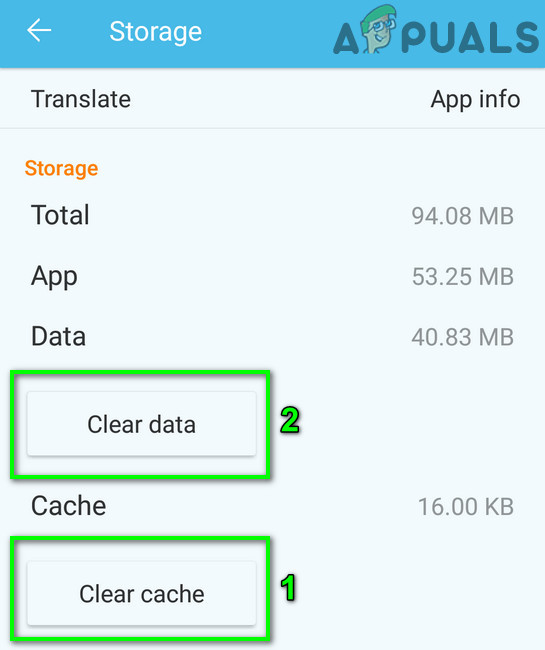
Clear Cache and Data of Google Translate App - Rerun the Translate app to assess if it’s now functioning as expected. Note that you might need to re-download offline languages.
Solution 2: Reinstalling the Translate Application
If clearing cache and data did not yield results, the installation files of the Google Translate app itself could be corrupted. Reinstalling the app from the Play Store might address this problem.
- Execute all steps mentioned in Solution 1 to Force Stop the app and clear its cache/data.
- Enter the phone’s Settings and tap on Applications/Application Manager.
- Navigate to Google Translate.
- Choose Uninstall and confirm to remove the app.
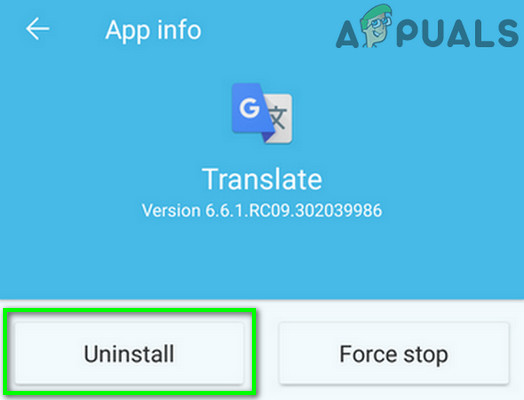
Uninstall Google Translate App - Restart the device after the uninstallation.
- Once the device is back on, reinstall the Google Translate app and check for error resolution.
If issues persist, you may want to try a different translation service, such as Yandex or Microsoft Bing Translator.





